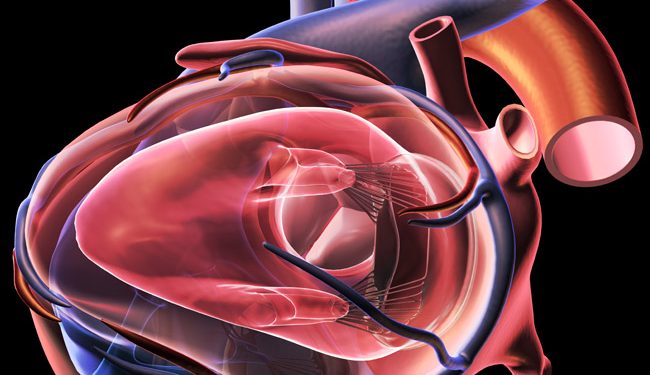A little larger than a fist, the normal heart is a strong, muscular pump. Each day, it beats 100,000 times and pumps more than 7,000 liters of blood. In a 70-year lifetime, an average human heart beats more than 2.5 billion times. Unfortunately certain conditions and diseases, if left untreated, can damage the heart and compromise its ability to pump sufficient amount of blood, a condition known as heart failure.
High blood pressure (hypertension) makes the heart work harder to pump blood. Over time, the increased workload leads to an enlarged heart that does not pump blood efficiently. Coronary heart disease causes narrowing of the blood vessels that supply the heart muscle, reducing the flow of blood through the vessels. This deprives portions of the heart muscle of oxygen, particularly during exercise or physical activity when the body needs more blood supply and oxygen. Coronary heart disease causes heart failure when it impairs the pumping function of the heart; it can also lead to a heart attack (myocardial infarction).
Heart muscle disease
Cardiomyopathy is a disease of the heart muscle (myocardium) that results in an enlarged, poorly pumping heart. Heart valve disease, which can be caused by a number of conditions including rheumatic heart disease, heart attack and aging, can also lead to heart failure. The valve can become narrowed (stenosis), which interferes with blood flow through the valve and increases pressure in the heart. In other cases, the valve can become leaky (insufficient), causing blood to flow backward (regurgitation). Some valves become both narrowed and leaky.
BUSINESS
BUSINESS
BUSINESS
Untreated, heart failure results in the progressive decrease in the amount of blood pumped by the heart (cardiac output), which causes a variety of symptoms. These include weakness, lightheadedness or dizziness, shortness of breath, rapid heart rate even while resting, swelling in the lower legs and feet (edema) or in the abdomen (ascites), and feeling tired quickly. Complications of untreated heart failure include cardiomyopathy, irregular heart rhythms (arrhythmias) that can lead to blood clots or even a stroke, and heart attack.
Heart failure is usually a chronic condition that continues for years. Treatment often involves a combination of lifestyle modification, medicines and a device that protects against arrhythmias (implantable cardioverter-defibrillator, or ICD).











